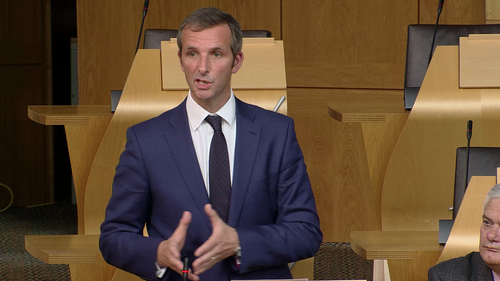McArthur highlights Citizens' Jury's backing for assisted dying law change

Liam McArthur MSP has today praised the work of the UK’s first Citizens’ Jury on assisted dying after it concluded that the law should change to permit assisted dying.
The Jury was commissioned by the Nuffield Council on Bioethics (NCOB) to consider whether a change in the law should be made to allow for assisted dying in England. It concluded that if a person has a terminal illness and capacity to make their own decision about an assisted death, they should be able to access such measures.
Of the 28 Jury members who were able to participate in the final vote, 20 either strongly agreed or tended to agree the law should change to permit assisted dying in England. This compares to 7 who said they either strongly disagreed or tended to disagree with a law change. One person was undecided.
According to the NCOB, "Jury members were randomly selected using a democratic lottery and stratification process called Sortition, to provide a representative sample of the English population. Together, they participated in an 8-week long deliberative process, which was designed to help them explore the complexity of assisted dying. They heard from a range of experts and considered a wide array of evidence before casting their votes on whether the law should be changed to allow assisted death."
Mr McArthur's assisted dying bill will shortly undergo parliamentary scrutiny from the Scottish Parliament's health committee.
Commenting on the Citizen's Jury, Mr McArthur said:
“I believe this has been an important piece of work on a fundamental issue that deserves detailed and nuanced scrutiny.
“Hopefully this will help further raise public awareness and debate, and give more confidence to my parliamentarian colleagues at Holyrood and Westminster that this is a change in the law that needs to happen and enjoys strong and widespread support amongst their constituents.
“It is clear that the public strongly support a change in the law, and that learning more about the impact of the current ban only reinforces their view that it is failing too many terminally ill people at the end of life.
“Of course, as parliament begins its scrutiny of my bill, I will continue to engage with charities, organisations and my fellow MSPs to understand their perspectives on this important issue."